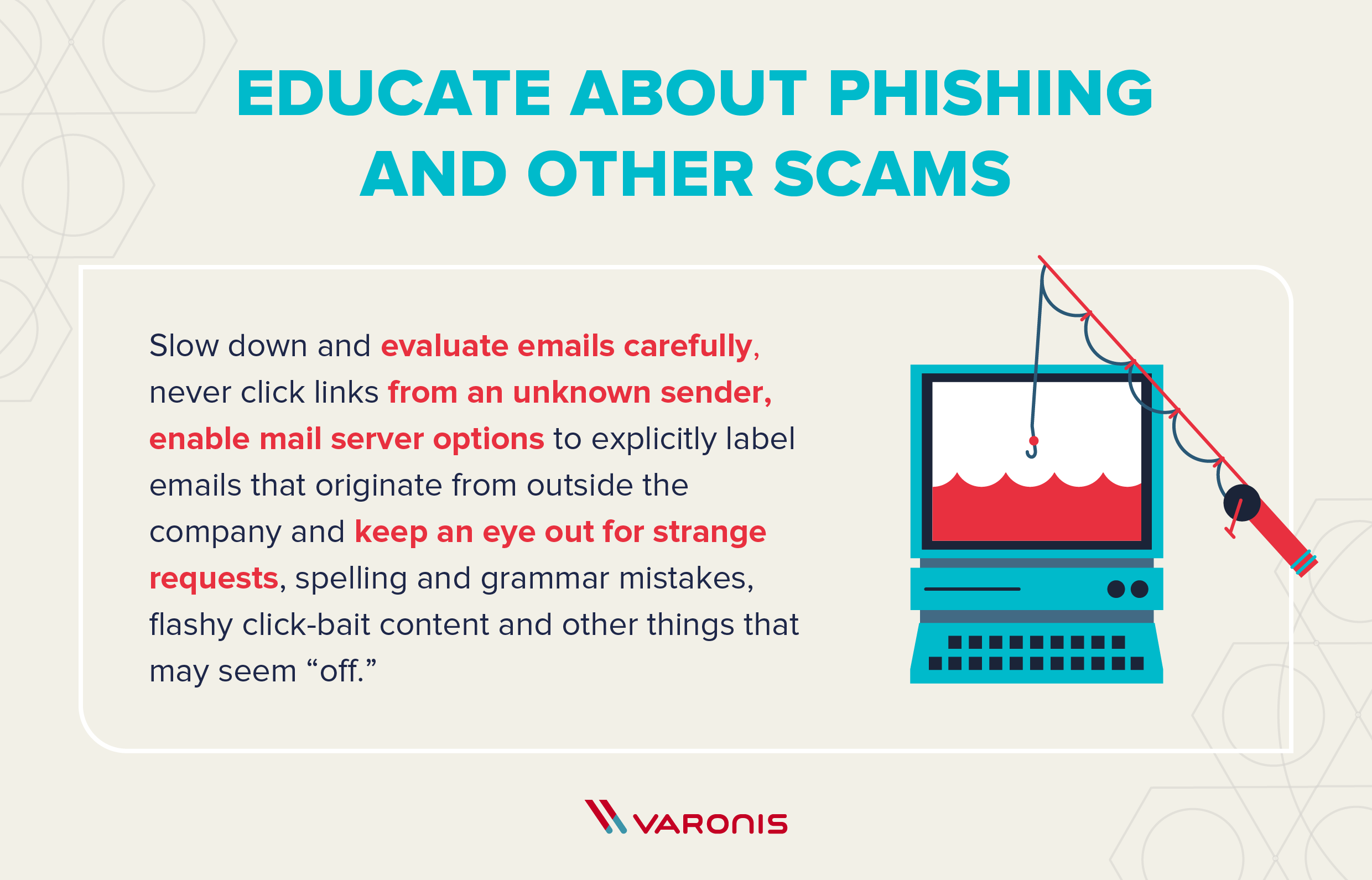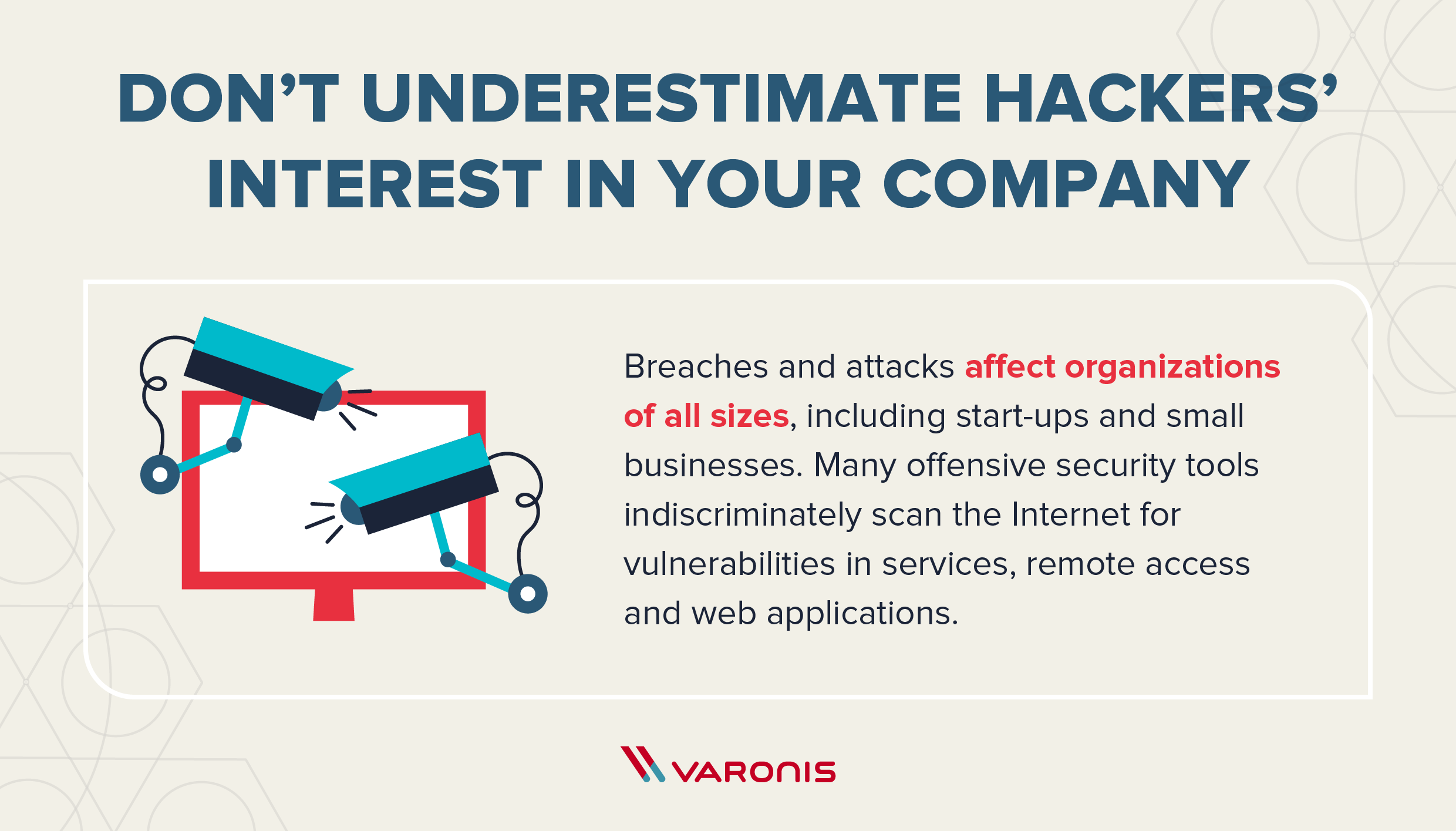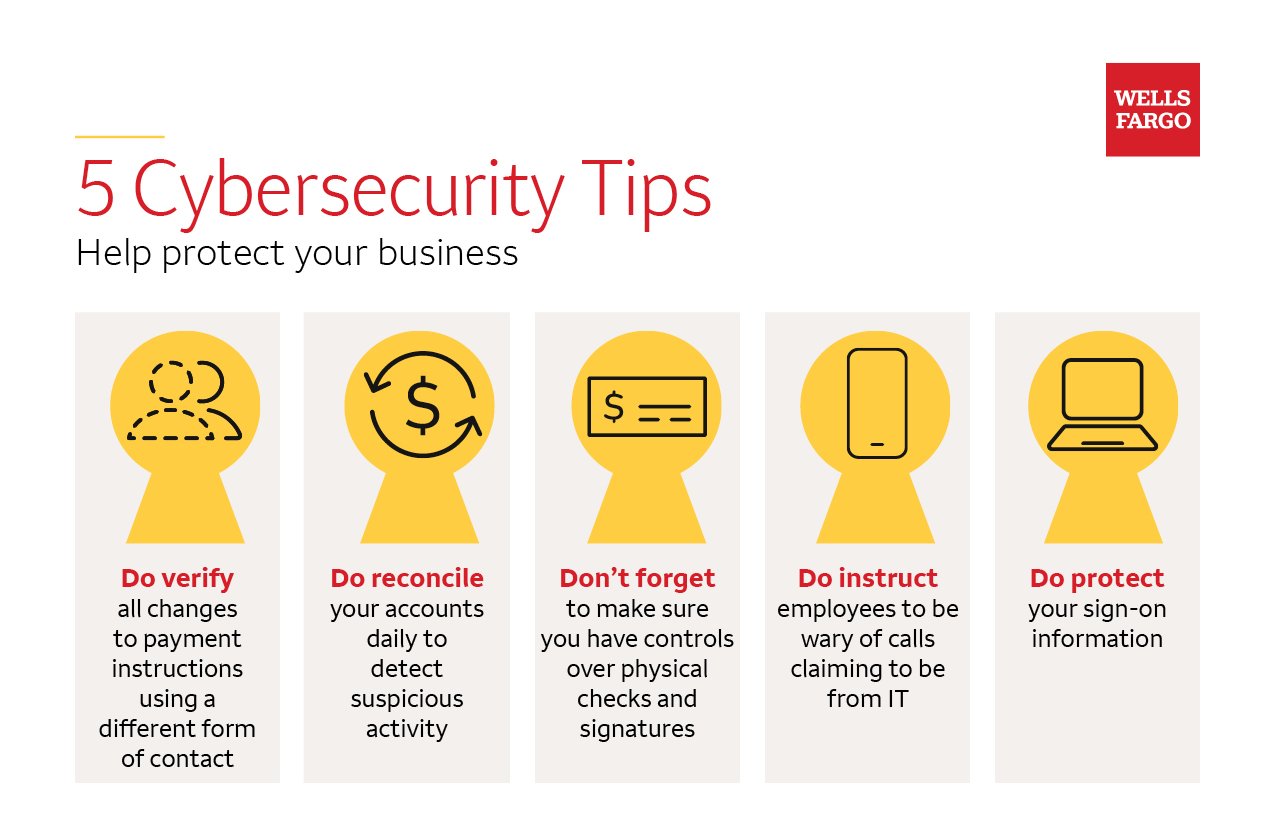**Cybersecurity Tips:** Use strong, unique passwords for every account. Regularly update software and be cautious of suspicious emails.
Cybersecurity has become essential in our digital age. As technology evolves, so do the threats that target personal and business data. Effective cybersecurity measures help protect sensitive information from hackers and cybercriminals. Simple actions, like using complex passwords and enabling two-factor authentication, can significantly enhance your security.
Awareness of phishing scams and malware can also prevent costly breaches. Staying informed about the latest cybersecurity trends is vital for everyone, from individuals to large organizations. Prioritizing cybersecurity not only safeguards personal data but also builds trust with clients and partners. Implementing these tips can create a robust defense against the ever-growing threats in the online landscape.
Credit: www.westchester-il.org
The Rising Threat Of Digital Attacks
The digital world is changing rapidly. More people use the internet every day. This growth brings new opportunities but also new dangers. Cyber attacks are becoming more common and more dangerous. Protecting yourself online is essential.
Recent Cyber Attack Statistics
Understanding the current landscape of cyber threats is crucial. Here are some shocking statistics:
| Year | Number of Attacks | Data Breaches |
|---|---|---|
| 2021 | 70% increase | 50% of companies |
| 2022 | 80% increase | 60% of companies |
| 2023 | 90% increase | 70% of companies |
These numbers show a clear trend. Cyber attacks are rising every year. Businesses and individuals are at risk.
Common Types Of Cyber Threats
Many types of cyber threats exist. Here are some common ones:
- Phishing: Fake emails trick users into giving information.
- Malware: Harmful software that damages devices.
- Ransomware: Holds data hostage for payment.
- DDoS Attacks: Overloads a server to crash it.
Each threat has unique methods. Understanding them helps in prevention.
Stay aware of these risks. Protecting your data is vital in today’s world.

Credit: www.varonis.com
Personal Cybersecurity Fundamentals
Personal cybersecurity is essential for everyone. Protecting your data helps keep you safe online. Simple steps can make a big difference. Focus on strong passwords and regular updates. These are the foundations of good cybersecurity.
The Role Of Strong Passwords
Passwords are your first line of defense. A strong password keeps hackers away. Use these tips for creating strong passwords:
- Use at least 12 characters.
- Combine uppercase and lowercase letters.
- Add numbers and special characters.
- Avoid common words or phrases.
Consider using a password manager. It helps store and create strong passwords. Change your passwords every few months. This practice adds an extra layer of security.
Importance Of Regular Software Updates
Software updates are crucial. They fix bugs and protect against threats. Ignoring updates can leave your devices vulnerable. Follow these steps to stay updated:
- Enable automatic updates on your devices.
- Check for updates regularly.
- Update apps as soon as new versions are available.
Outdated software can be a gateway for hackers. Keep your operating system current. Use this simple table to track your updates:
| Device | Last Update | Next Update Due |
|---|---|---|
| Laptop | October 1, 2023 | January 1, 2024 |
| Smartphone | September 15, 2023 | December 15, 2023 |
| Antivirus | October 5, 2023 | Ongoing |
Stay proactive. Regular updates and strong passwords keep your personal information safe.
Protecting Your Online Presence
Protecting your online presence is crucial today. Cyber threats can harm your personal and professional life. Simple steps can keep your information safe. Follow these tips to enhance your online security.
Social Media Security Practices
Social media can expose you to risks. Use these practices to secure your accounts:
- Use strong passwords. Combine letters, numbers, and symbols.
- Enable two-factor authentication. This adds an extra layer of security.
- Limit personal information. Avoid sharing sensitive details.
- Review privacy settings. Adjust who sees your posts.
- Be cautious of friend requests. Only accept known contacts.
Safe Web Browsing Habits
Safe web browsing helps prevent cyber threats. Follow these safe habits:
- Use secure websites. Look for “https://” in the URL.
- Avoid public Wi-Fi. Use a VPN if necessary.
- Keep software updated. Install updates for your browser and apps.
- Be wary of pop-ups. Do not click on suspicious ads.
- Use antivirus software. Protect your device from malware.
Implementing these tips will help you maintain a safer online presence.
Securing Mobile Devices
Mobile devices store a lot of personal information. Protecting them is crucial. Cyber threats target smartphones and tablets daily. Here are some tips to keep your devices safe.
Best Practices For Smartphone Security
Smartphones are essential tools. Here are key practices for securing them:
- Use Strong Passwords: Create complex passwords. Avoid easy-to-guess options.
- Enable Two-Factor Authentication: Add an extra layer of security. Use codes sent to your phone.
- Keep Software Updated: Regular updates fix security flaws. Enable automatic updates when possible.
- Install Apps from Trusted Sources: Only download from official app stores. Check reviews and ratings.
- Activate Remote Wipe: Erase your phone’s data remotely if lost. This protects your information.
Tablet Protection Techniques
Tablets often contain sensitive data. Follow these techniques for better protection:
- Set Up a Lock Screen: Use a PIN, password, or pattern. This stops unauthorized access.
- Use Security Apps: Install antivirus and anti-malware apps. They help detect threats.
- Limit Wi-Fi Connections: Connect only to secure networks. Public Wi-Fi can expose your data.
- Disable Bluetooth: Turn off Bluetooth when not in use. This prevents unauthorized connections.
- Regularly Backup Data: Use cloud services or external storage. This ensures data recovery if lost.
| Security Tip | Importance |
|---|---|
| Strong Passwords | Prevents unauthorized access |
| Two-Factor Authentication | Enhances account security |
| Software Updates | Fixes vulnerabilities |
| Trusted Apps | Reduces malware risks |
| Remote Wipe | Protects data if lost |
Staying Ahead Of Cybercriminals
Cybercriminals constantly evolve. Staying ahead requires knowledge and tools. Understanding threats helps protect your data. Here are essential tips to stay secure.
Educating Yourself On Phishing Scams
Phishing scams trick users into giving sensitive information. These scams often come through email or fake websites. Here’s how to recognize them:
- Check the sender’s email address. Look for small errors.
- Beware of urgent language. Scammers create a sense of urgency.
- Hover over links. Verify where they lead before clicking.
- Look for spelling mistakes. Many scams have poor grammar.
Stay informed about new phishing tactics. Regularly read articles about cybersecurity threats. Join online forums to learn from others.
Using Advanced Security Tools And Services
Advanced security tools protect against cyber threats. Consider these options:
| Tool/Service | Purpose |
|---|---|
| Antivirus Software | Detects and removes malware. |
| VPN (Virtual Private Network) | Secures your internet connection. |
| Firewalls | Blocks unauthorized access. |
| Password Managers | Stores and generates strong passwords. |
Use multi-factor authentication. It adds an extra layer of security. Regularly update software to fix vulnerabilities. Always back up your data in a secure location.

Credit: www.varonis.com
Frequently Asked Questions
What Are Essential Cybersecurity Tips For Beginners?
Start with strong, unique passwords for each account. Enable two-factor authentication wherever possible. Regularly update software and applications to fix vulnerabilities. Be cautious of suspicious emails and links. Back up important data frequently to prevent loss.
How Can I Protect My Home Network?
Change the default password on your router. Use WPA3 encryption for better security. Disable remote management features unless necessary. Regularly update your router’s firmware. Monitor connected devices and remove any unfamiliar ones.
What Should I Do If I Suspect A Cyber Attack?
Immediately disconnect the affected device from the internet. Run a full antivirus scan to identify threats. Change passwords for sensitive accounts without delay. Report the incident to your IT department or cybersecurity professional. Document what happened for future reference.
How Often Should I Update My Passwords?
Change your passwords every three to six months. Use a password manager to generate and store unique passwords. Update immediately if a service you use reports a breach. Avoid using the same password across multiple sites.
Conclusion
Cybersecurity is essential for everyone. By following these tips, you can protect your personal information and devices. Stay informed about the latest threats and regularly update your security measures. Taking proactive steps helps ensure your online safety. Remember, a strong defense begins with awareness and consistent action.
Stay secure!
